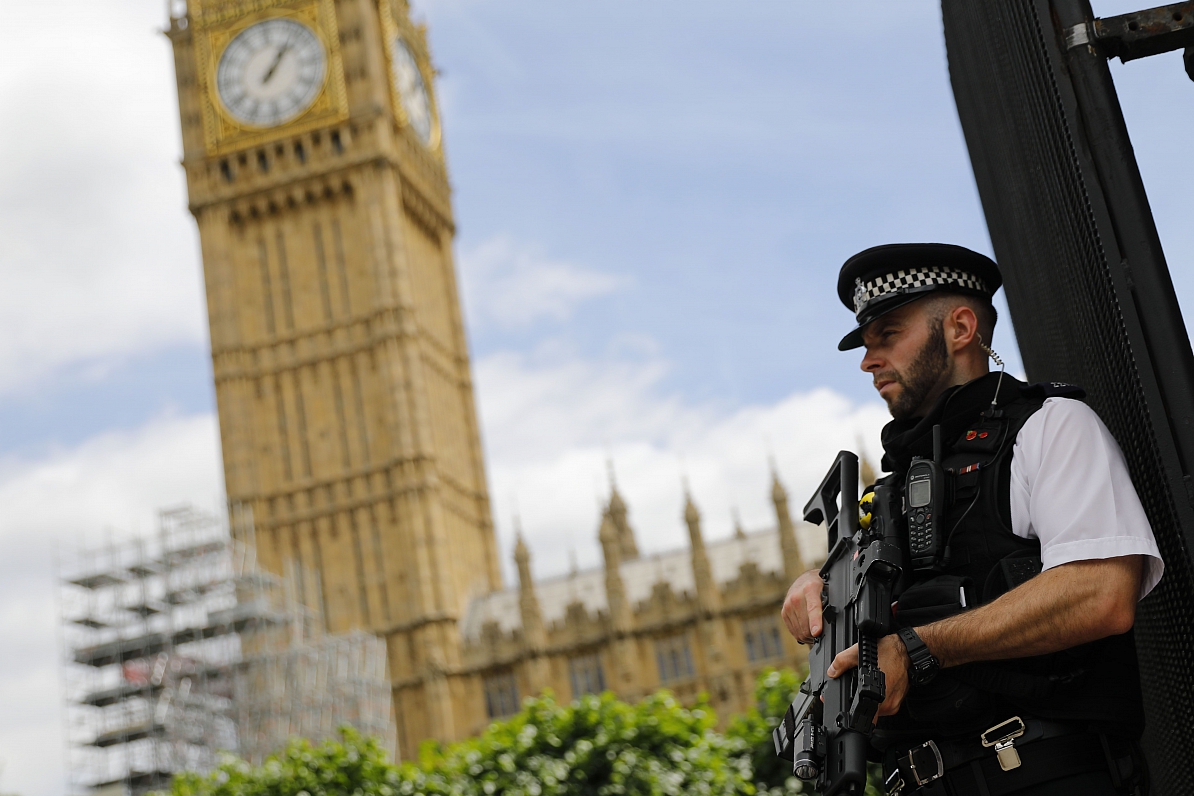European Centre for Counterterrorism and Intelligence Studies, Germany & Netherlands – ECCI
Radicalised teenagers a ‘new and emerging’ threat, warns terror chief
telegraph– Head of UK Counter Terrorism Policing says youngsters are turning their online extremism into ‘real threats of violence on our streets’Britain is facing a “new and emerging” terrorist threat from a record number of teenage extremists radicalised online, the UK’s counter-terror police chief has warned.
Matt Jukes, the head of UK Counter Terrorism Policing (CTP), said increasing numbers of teenagers were turning their extremism into active terror plots that could translate into violence on Britain’s streets.Figures released by CTP showed that under-18s now accounted for one in five arrests by counter-terror police, a five-fold increase since 2019 when it was just four per cent.
“The really remarkable thing is that you can find yourself with a prison sentence not having left your bedroom because of encouraging, inciting, sharing information, downloading bomb-making instructions and encouraging other people to take in acts of violence,” Mr Jukes told BBC Radio 4’s Today programme.
“Sadly we are seeing more of this translate into real threats of violence on our streets. We have seen in casework not just the downloading and sharing of things like bomb-making instructions and other material which might inform terrorists but the downloading of instructions for 3-D firearms, for building items themselves.“We have seen in some of our casework people purchasing precursor chemicals online and we have seen hostile reconnaissance of potential targets.”
‘A contagion of sorts’
“We know that the driving threat here is online but we also see in our casework that in far younger people than ever before, that can translate into them carrying out acts of violence.”Mr Jukes cited the case of Daniel Harris, a 19-year-old from Derbyshire who was sentenced to 11 and a half years in jail after posting far-right extremist videos online that influenced the killer behind the mass shooting of 10 people in a supermarket in Buffalo, New York.
Harris’s extremism began when he was 17 and included posting videos glorifying mass murderers and encouraging others to emulate them by carrying out similar attacks.“It is a real concern and it’s a contagion of sorts,” said Mr Jukes. “It is set against an overall case work of 800 live cases that are currently under investigation but it’s one in five of arrests we make involves someone under 18.
“This is a new and emerging threat that should concern us and certainly should concern us in respect of the online lives of our communities.“These extreme ideologies are much more available online and on social media than they ever were before. And we know young people are exploring dark corners of the web.”
Social isolation
Mr Jukes said the pandemic had fuelled the increase in young people involved in terrorist offending, and that social isolation and time spent online was a contributing factor.The way young people interact with hateful content is also changing. More and more are taking elements of existing extreme viewpoints and merging them together to create new ideologies, according to CTP.
“We’re seeing a big increase in people drawing down hateful content and using that to construct their own view of the world,” said Mr Jukes.His comments come just two weeks after Suella Braverman, the Home Secretary, published the Government’s updated counter-terrorism strategy with a warning that the terror threat is “rising”.
She said there would be “more attempts” to mount attacks by extremists.It said the domestic threat stemmed from “individuals or small groups”, inspired or encouraged by established terror groups like Islamic State or Al Qaeda, but who were “less predictable” and harder for the security services and police to “detect and investigate”.
Schoolboys most at risk of radicalisation
According to the latest figures for the Government’s Prevent counter-terrorism programme, schoolboys made up the highest proportion of people deemed to be most at risk of radicalisation.It is the first time that the education sector has made the highest number of referrals to the Prevent programme, replacing the police, which made 1,808 referrals, 28 per cent of the total. Boys aged under 15 made up 1,829 referrals, 29 per cent of the total, according to the data for the year to March 2022.
They accounted for 37 per cent of Prevent referrals that were adopted as “channel cases”, which are those considered most at risk of becoming radicalised and turning to terrorism. Under-15s made up the largest proportion of all age groups adopted as channel cases.
More than 150 Prevent referrals were related to concerns surrounding school massacres. Some 77 people were referred due to their association with the incel subculture, an online community of men and boys who consider themselves unable to attract women sexually and turn to hostility and violence against them.The largest number of referrals related to people “with a vulnerability present but no ideology or counter-terrorism risk”. They made up 2,127 referrals, a third of the total.
The second largest number of referrals was related to concerns about extreme right-wing radicalisation, making up 1,309 or 20 per cent. It is the second year running that far-right extremism was greater than Islamist concerns, which made up 1,027 or 16 per cent.




